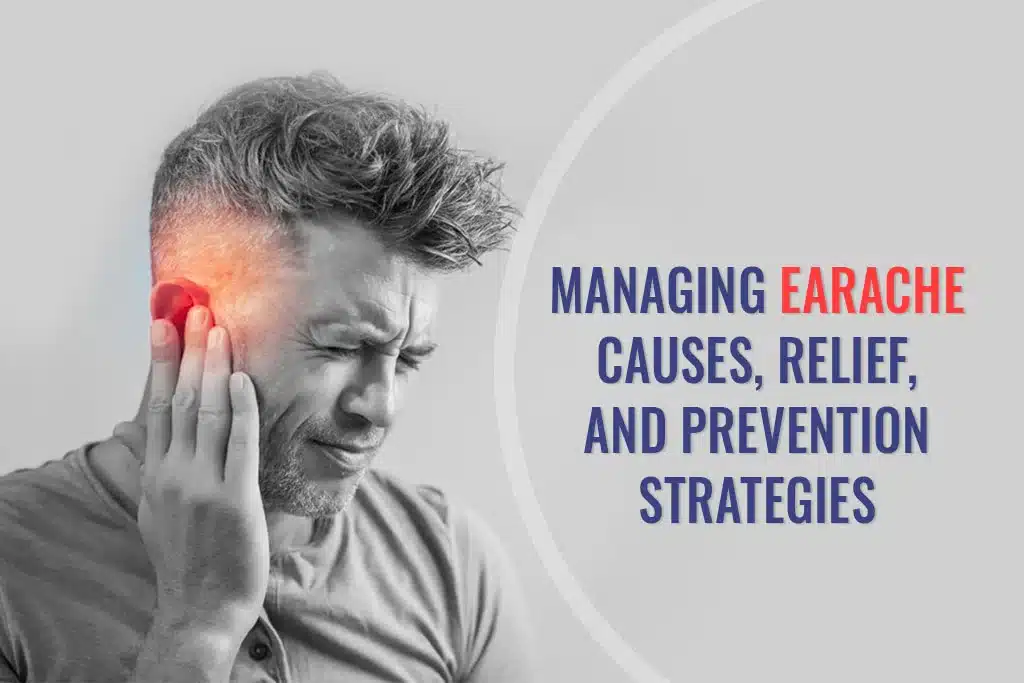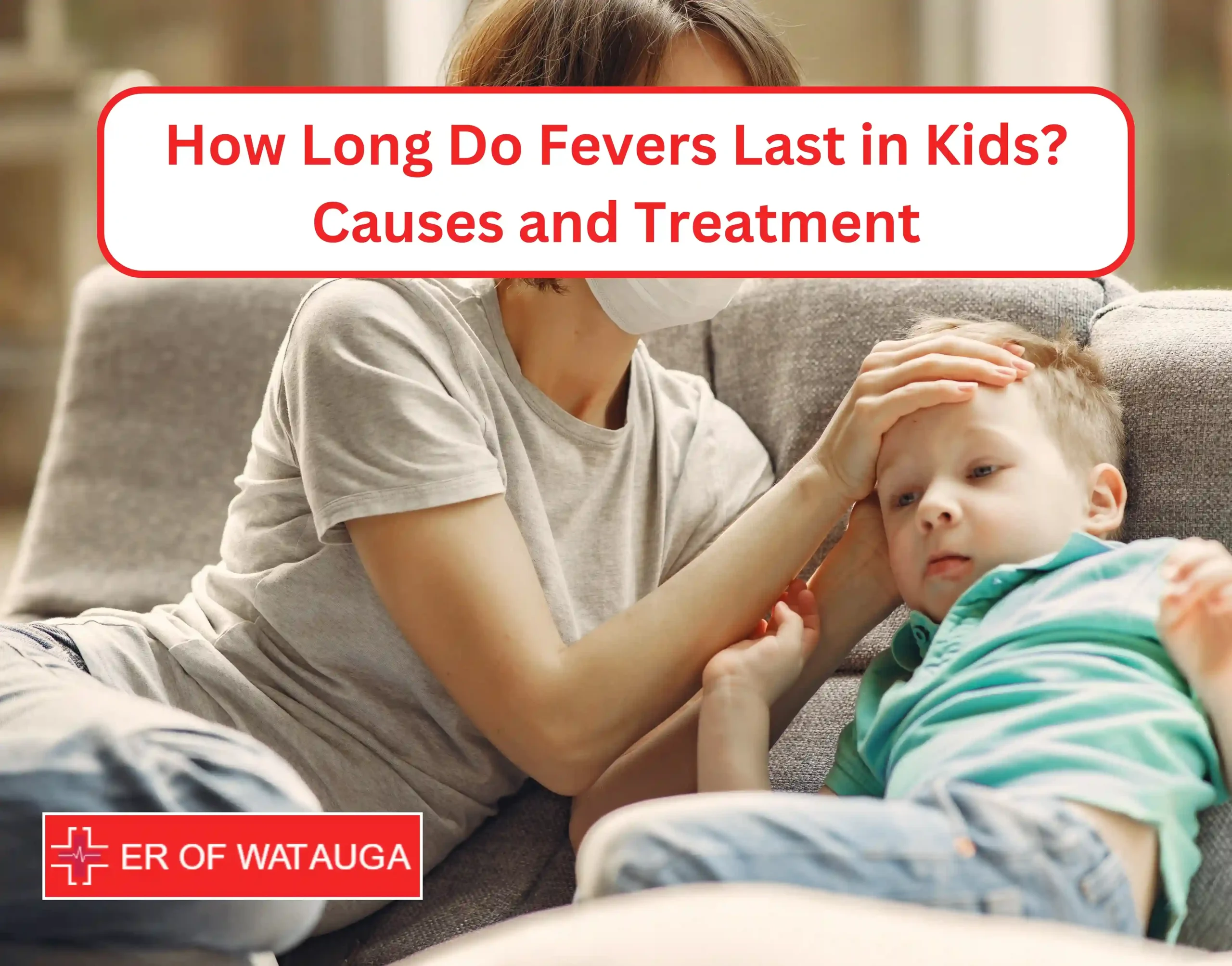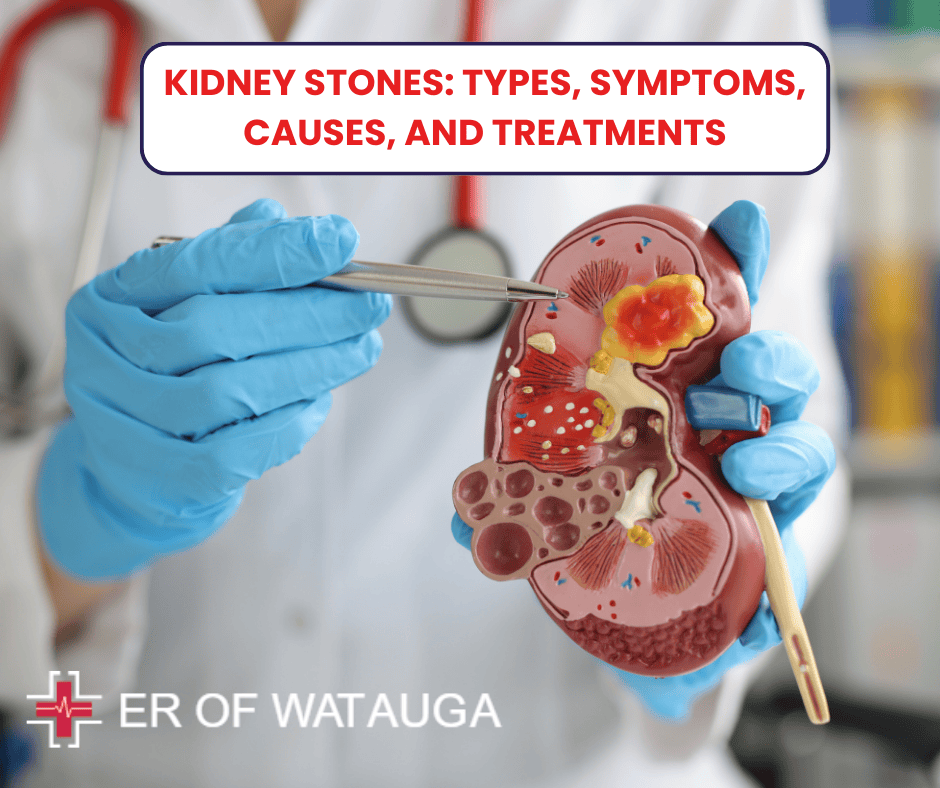Are you surviving with Earache and seeking for its common causes, relief, and prevention strategies? Welcome, you have landed on the right page. One of the most prevalent reasons we send our children to the doctor or seek treatment for our troublesome ears is Earache or ear pain.
In addition to being an indication of an infection, it might indicate the presence of other medical issues. Ear pains are rarely symptoms of a serious medical condition. How to treat it, is condition-specific. ER of Watauga is your go-to emergency room offering reliable medical healthcare solutions to make you feel well in case of sickness. In this blog, we will discuss the common causes, effects, diagnosis, treatment, and preventive measures for Earache.
What is Earache?
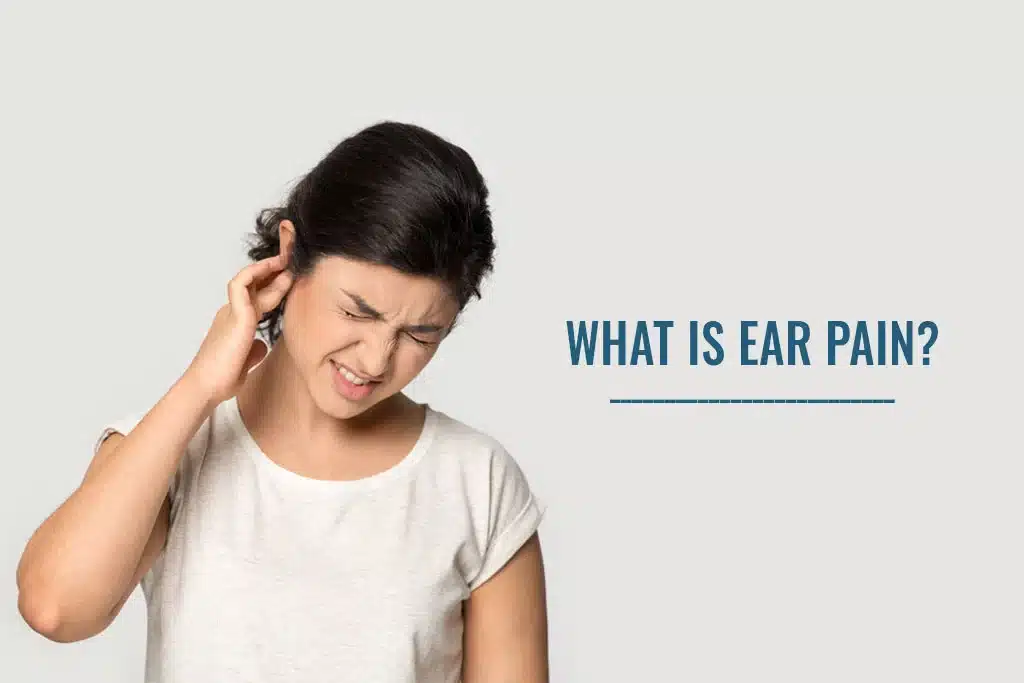
Earache (ear discomfort) is one of the most common reasons we bring our children to the doctor or seek treatment for our aching ears. In addition to being an indication of an infection, it might indicate the presence of other medical issues. Earache and pains are rarely symptoms of a serious medical condition. How to treat it is condition-specific.
Who’s affected by Earache?
It can affect almost everybody. These are more common in younger children than in older children or adults. Eighty percent of kids will have acute otitis media, a condition affecting the middle ear, by the time they turn three years old, according to one study.
Symptoms and Causes of Earache
What does it mean when my ears hurt?
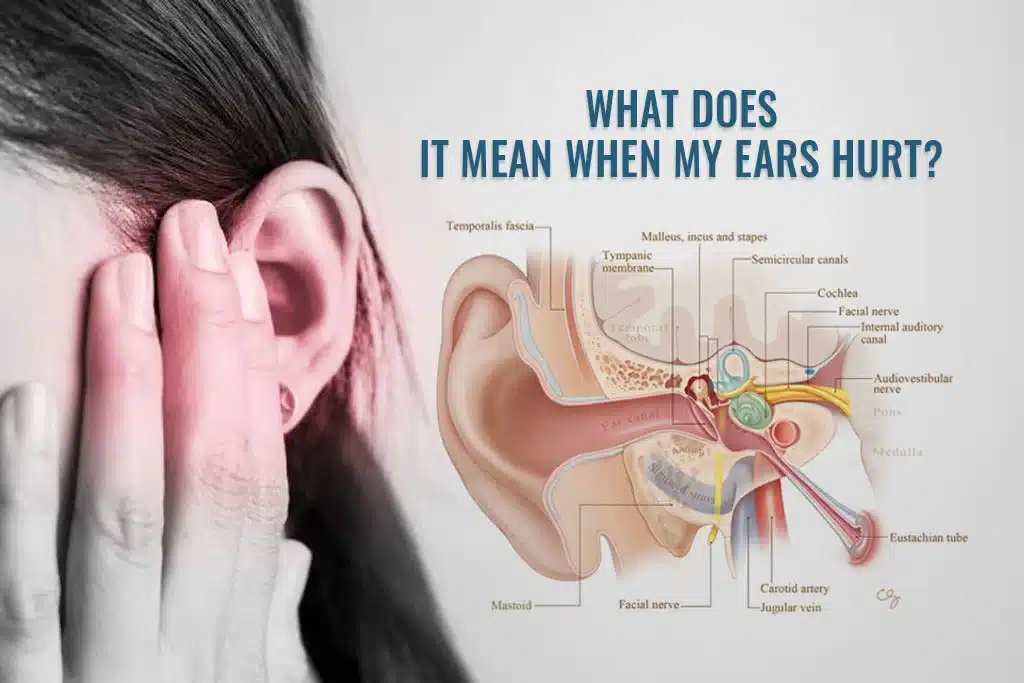
Many factors can make your ears hurt. Healthcare experts divide ear discomfort into two categories: main and secondary.
- Primary ear discomfort originates in your ears. For example, ear infections can produce primary ear pain. Children are more likely than adults to experience primary ear pain. Primary ear pain often worsens with time.
- Secondary ear pain occurs when your ears are unintentionally affected by medical issues that affect other parts of your body. For example, a person with impacted wisdom teeth may experience Earache. This is referred to as pain. Referred pain occurs when your ears and nearby body parts share nerves with your brain.
Common primary causes of Earache
- A severe pressure change induces barotrauma. Your ears begin to hurt or feel full while flying or scuba diving. Barotrauma can result in burst eardrums.
- A foreign thing in your child’s ear. Your ear hurts, and you can’t hear very well. Children who are naturally curious frequently end up with small things like food, stones, or beads lodged in their ears.
- Eustachian tube dysfunction. Your ears ache or feel full. You may have tinnitus (ear ringing) or hear popping sounds.
- Swimmers’ ear (otitis externa). Middle ear infections are common in children with upper respiratory infections that produce congestion and swelling of the eustachian tubes. If a very young child pulls on their ears, it may indicate that they have an ear infection.
- Otitis media (middle-ear infection). Middle ear infections are common in children who have upper respiratory infections that produce congestion and swelling of the eustachian tubes. If a very young child pulls on their ears, it may indicate that they have an ear infection.
- Otitis interna is an infection of the inner ear. Symptoms include dizziness, hearing loss, nausea, vomiting, and involuntary eye movement.
Common secondary causes of Earache
- Tonsillitis or a sore throat. You or your child have a terrible sore throat that either resolves fast or persists
- Dental issues. You or your child have a cavity or an abscessed tooth
- Gastroesophageal reflux (GERD)
- Ear infections
- Temporomandibular Joint Syndrome. Opening your mouth or chewing causes pain in your ear(s)
How can I tell if I have an ear infection or an Earache?
People frequently assume that a painful ear signifies they have an ear infection. Here’s some information to help you comprehend the differences:
An Earache can feel like pressure in your ear. Some Earache appear suddenly, although they can worsen with time.
An ear infection is usually the result of an upper respiratory illness. Symptoms include a temperature and a general feeling of being tired or ill. Ear infections are more prevalent in youngsters than in adults.
Are Earaches a COVID symptom?
Although the COVID-19 virus affects people in a variety of ways, Earache are not a prevalent symptom.
Diagnosis and Tests
How do healthcare providers diagnose Earaches?
Your provider will inquire about your symptoms. They will examine your ears.
If your child’s ears appear to be in good health, your doctor may investigate any underlying issues that could cause secondary ear pain. Depending on what they discover, they may recommend that you consult an ear, nose, and throat (ENT) specialist.
Management and Treatment
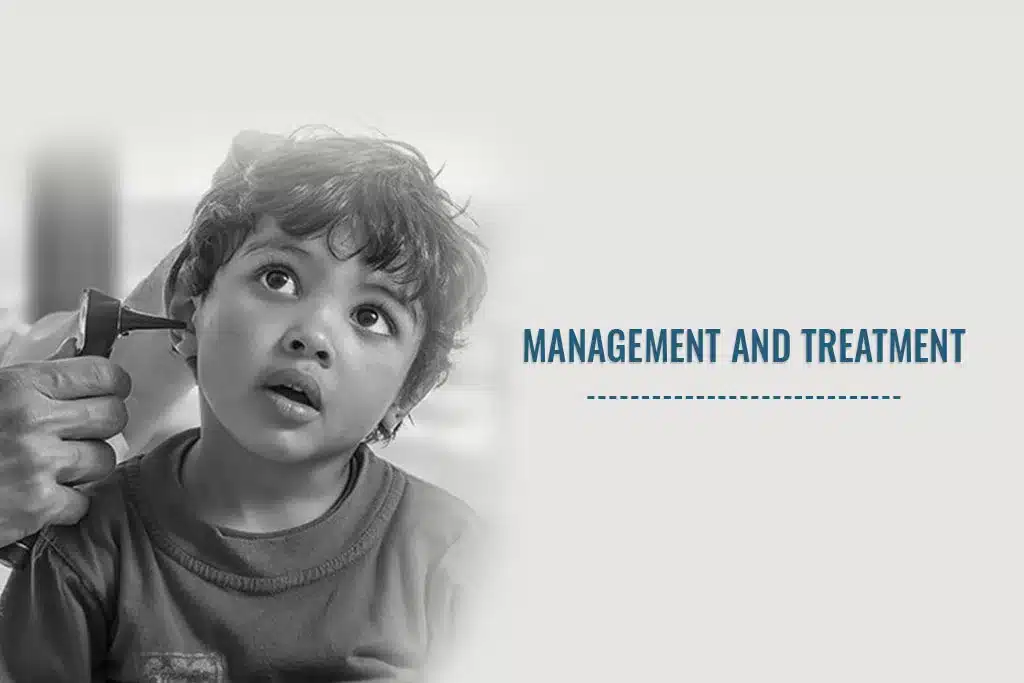
How do healthcare providers treat Earaches?
Providers focus on identifying and treating the underlying cause of Earache. For example, if your child has an ear infection, your provider may prescribe over-the-counter pain relievers. They may also prescribe antibiotics. Similarly, if your child has ear pain as a result of a sore throat, your physician will address it.
Home remedies for Earache
There are several home remedies available to help relieve ear infection symptoms in children. Some prominent alternatives are:
Warm compress: Placing a warm compress on the afflicted ear might help reduce discomfort and inflammation. You can use a warm, damp washcloth or a heating pad set to low heat.
Over-the-counter pain relievers: Acetaminophen or ibuprofen for children can help decrease ear infection pain and fever. Follow the suggested dosage guidelines and ask your child’s pediatrician if you have any queries.
Garlic oil: It is a common home treatment for ear infections due to its inherent antibacterial qualities. To use garlic oil, reheat a few drops and apply them to the affected ear with a dropper. However, do not insert any liquid or object.
How to stop an Earache fast in a child?
As needed, administer acetaminophen or ibuprofen to relieve pain (seriously read the instructions to determine the appropriate dosage). Ibuprofen should not be given to a baby younger than six months old. Raising your child’s head as they sleep can also help relieve pain, as can applying a warmed towel to the ear.
What can I do for ear pain using Earache drops?
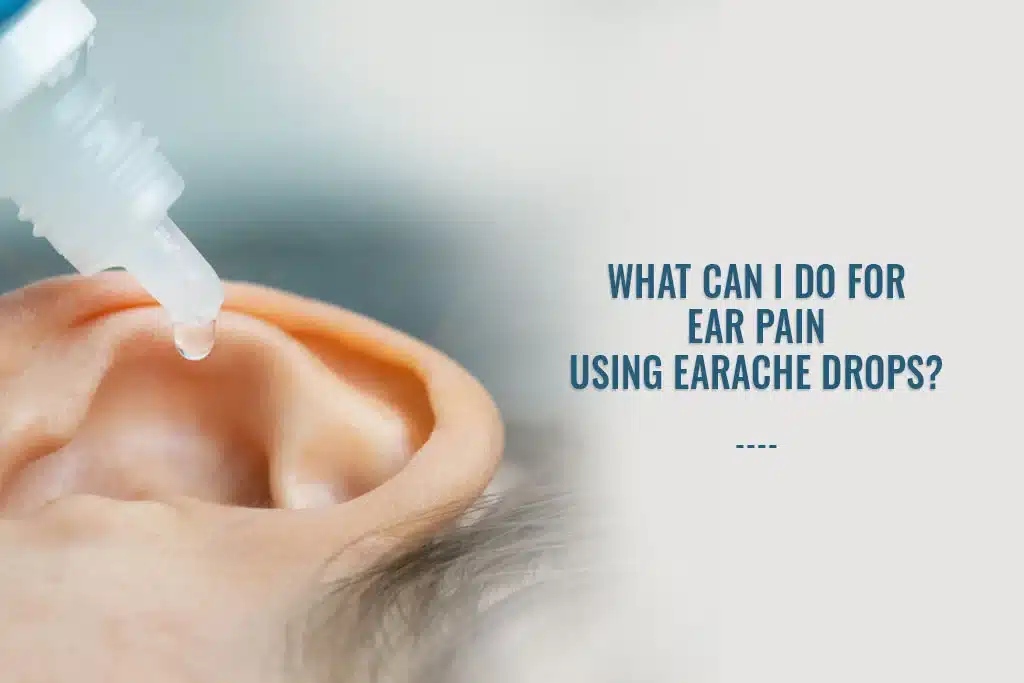
Liquid drugs called ear drops are inserted into the canal of your ear. Ear drops are useful for treating earwax blockage, discomfort, inflammation, and infections. Ear drops are available for purchase over the counter. Alternatively, you can obtain a prescription from your medical professional.
Prevention
Earache occur for a variety of reasons. Fortunately, there are things you may take to lessen your chances of experiencing an Earache:
- Protect your ears when flying in airplanes to avoid barotrauma.
- Clean your ears carefully.
- Use a swab to clean your outer ear rather than probing into the ear canal.
- Upper respiratory infections can irritate your ears and produce severe ear infections.
- Washing your hands can reduce your risk of contracting infections, especially if you frequently contact your nose, eyes, and mouth.
- You should also avoid sick folks.
What can I expect if my child has an Earache?
There are various reasons why your child can have an Earache. Some ear pains subside on their own. If your child’s Earache persists for more than two days or you notice any other symptoms such as fever, chills, or congestion, contact our team of expert physicians.
How do I take care of my Earache?
Earache can be caused by a variety of factors, including infections, changes in air pressure, and underlying ear problems. Once you’ve determined what caused your ear pain, consult your doctor about steps you can take to lessen the likelihood of repeated ear troubles.
What questions should I ask my doctor?
If you suffer from Earache, you may have the following questions:
- What caused my ear pain?
- Is my ear pain indicative of an underlying condition?
- How do you handle the issue?
- How can I avoid Earache?
Conclusion
Most people will experience Earache (ear pain) at some point in their life. Ear pain and ear infections are the most common reasons for children to contact our healthcare professionals. You may be tempted to disregard your aching ears because they are a typical occurrence. However, Earache might worsen if not treated. Furthermore, ear pains may indicate underlying medical issues that are dangerous. If you are concerned about your ear health, speak with your healthcare professional. ER of Watauga is your one-stop emergency room offering comprehensive healthcare services in your town. You can rely on us to acquire specialized care from our well-experienced team of physicians and nurses. Contact us now to make an appointment or to learn further about the illness.
FAQs
Is it safe to put hydrogen peroxide in your ear for an Earache?
Consider hydrogen peroxide as a home remedy that might aid you in clearing out earwax buildup. However, that doesn’t mean it’s going to help you with your Earache in general. When using this solution, it is essential to ensure that you use a dilute solution by all means and always seek the advice of your healthcare provider before doing the same.
A food worker has an Earache what is required to do?
A food worker suspecting to be experiencing Earache should advise their supervisor as soon as possible and the finger is pointed at an infection if there is fever coupled with other symptoms. If the illness is serious and a health policy governing the workplace is in effect, healthcare attention may be recommended and, in certain instances, work should be avoided until the worker is feeling well once again, for sanitation reasons and to keep the food safe for consumption.
What causes headache and Earache at the same time?
The sores may deal with several conditions, including sinus infections, TMJ (temporomandibular joint) disorders, or more often issues like tension headaches accompanied by ear pains because of muscle tightness. Identification of the underlying patient health issue is fundamental to the performance of the treatment.
How to relieve Earache from toothache?
There are usually common nerve pathways in the face and jaw responsible when the ear hurts as well as the toothache pain. The toothache treatment is the most pronounced method rather than ear pain. The painkillers available over the counter can provide temporary relief, especially for immediate discomfort. A dental visit however is necessary for the long-term pain remedy and also for evaluation and treatment of the cause of the pain.
How to steam an onion for Earache?
With an Earache, you just have to cut an onion in halves, and then steam it till the onion is soft but not too soft. Once the inside of your ear is warm enough to the point that you can handle it without burning yourself but still warm, wrap it in a clean cloth and hold it against the ear with the pain. The heat contributes to calming (maybe also reduces) the pain and (perhaps) the natural content that is there in the onions also may reduce inflammation.
